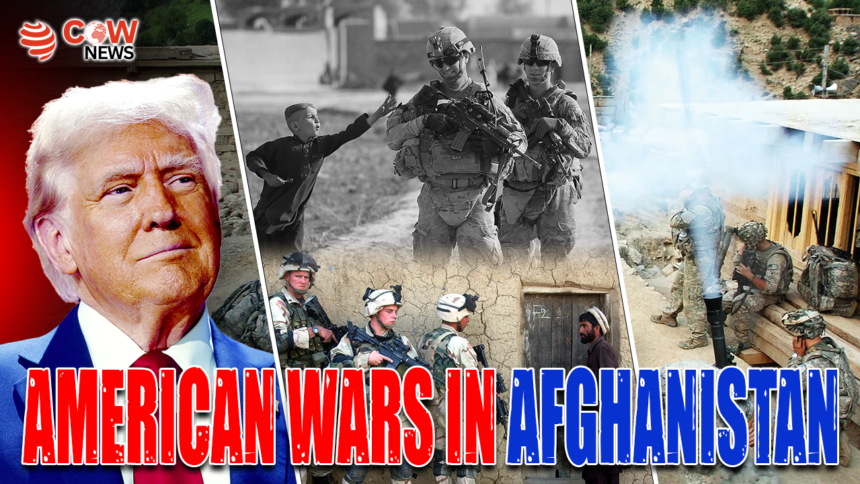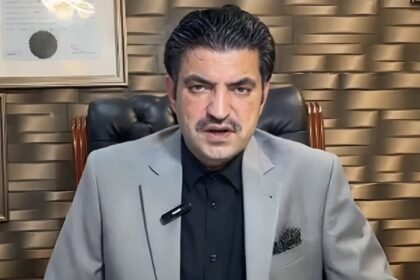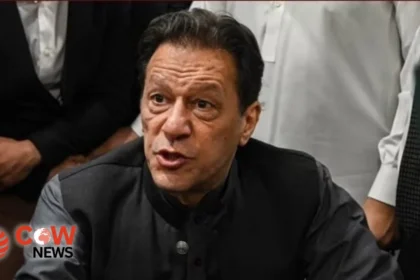By Faizan Hussain
Forty-seven years ago, in 1978, the People’s Democratic Party of Afghanistan (PDPA), which had a strong communist ideology, staged a coup with Soviet support, overthrowing and assassinating President Daoud Khan and his family. This event, known as the “Saur Revolution,” marked the beginning of a conflict that would engulf Afghanistan for decades.
The Soviet Intervention (1979-1989)
In 1979, Soviet commandos arrived in Afghanistan, assassinating President Hafizullah Amin. His government crumbled almost instantly, paving the way for Babrak Karmal, a communist leader, to take control under Moscow’s patronage. With an estimated 30,000 troops, the Soviet Union launched a full-scale military intervention, both by air and land.
The Soviet-Afghan war (1979-1989) became one of the most significant geopolitical and ideological conflicts of the 20th century. On one side was the Soviet Union, propagating communist ideals, while on the other were the Afghan Mujahideen, who were portrayed as defenders of religious and national freedom. The war drew in global players, especially the United States and Pakistan, making it a crucial battleground of the Cold War.
Why Did the Soviet Union Invade Afghanistan?
Following the 1978 Saur Revolution, the PDPA, under Nur Muhammad Taraki, implemented radical communist reforms, including land redistribution and women’s rights initiatives. However, these reforms disregarded Afghan traditions and religious values, sparking widespread rebellion. Unable to suppress the uprising, the Afghan government sought Soviet military assistance. The Soviets, fearing the collapse of a communist ally and U.S. influence in the region, intervened militarily in December 1979.
Pakistan’s Role: A Decisive Player
Pakistan, under General Zia-ul-Haq’s military regime, played a decisive role in the Soviet-Afghan war, seeing the conflict as a matter of national security and strategic interest. Pakistan’s Inter-Services Intelligence (ISI) became the primary conduit for training, arming, and funding the Mujahideen.
As a result of the war, approximately 3 million Afghan refugees poured into Pakistan, leading to the establishment of vast refugee camps in Khyber Pakhtunkhwa and Balochistan. While these camps provided shelter, they also became recruitment centers for Mujahideen fighters.
The Role of the United States and Other Global Players
The U.S., through the CIA’s covert “Operation Cyclone,” funneled billions of dollars in financial and military aid to the Mujahideen via Pakistan. This aid included the provision of Stinger missiles, which proved crucial in countering Soviet air superiority. The Soviet intervention was seen as part of the broader Cold War struggle, and Western powers, including the UK and NATO allies, supported the Mujahideen to bleed the Soviet Union dry.
China and Saudi Arabia also played vital roles; China supplied arms to the Mujahideen, while Saudi Arabia provided extensive financial support.
The United Nations passed multiple resolutions calling for Soviet withdrawal. Eventually, under the Geneva Accords (1988), the Soviets agreed to leave Afghanistan, completing their withdrawal in 1989. While seen as a victory for the Mujahideen, the war’s aftermath left Afghanistan in ruins, setting the stage for a prolonged civil war and the eventual rise of the Taliban.
Consequences of the Soviet Withdrawal
The Soviet withdrawal was hailed as a major victory, but its consequences were far-reaching:
- Afghanistan plunged into civil war as Mujahideen factions fought for power.
- Infrastructure and economy lay in ruins, leaving millions displaced.
- The Taliban emerged as a dominant force, later becoming a global issue.
- Pakistan faced long-term challenges, including an influx of weapons, drugs, and extremist ideologies.
- The Soviet Union, economically drained by the war, collapsed two years later, leaving the U.S. as the world’s sole superpower.
The American War in Afghanistan (2001-2021)
Fast forward to September 11, 2001—the world watched in horror as the Twin Towers collapsed in New York City following a coordinated terrorist attack by al-Qaeda. The U.S. blamed Osama bin Laden, the leader of al-Qaeda, who was being sheltered by the Taliban regime in Afghanistan. This led to the launch of the “War on Terror.”
The U.S. Invasion: Justification and Objectives
In October 2001, the U.S. invaded Afghanistan with the aim of dismantling al-Qaeda, removing the Taliban from power, and establishing a stable democratic government. The Taliban were swiftly overthrown, but the war was far from over.
The U.S. received backing from NATO, marking the first invocation of Article 5—collective defense—by the alliance. The United Nations recognized America’s right to self-defense and urged the Taliban to hand over al-Qaeda leaders, but the Taliban refused, leading to military action.
Global and Regional Reactions
- Russia & China: Initially supported the war on terror but later criticized the prolonged U.S. occupation.
- Islamic Nations: Condemned terrorism but were divided over U.S. military actions.
- Pakistan: Played a crucial yet controversial role. Islamabad provided logistical support to U.S. forces, opened its airspace, and shared intelligence, leading to the capture of key al-Qaeda operatives. However, this also resulted in internal turmoil, with terrorist attacks and political instability escalating within Pakistan.
The Cost of the War
Over 20 years, the war took a heavy toll:
- Over 200,000 Afghan civilians, militants, and international troops died.
- The U.S. spent over $2 trillion on military operations, reconstruction, and aid.
- The Taliban’s insurgency grew stronger despite U.S. efforts.
- Corruption plagued the U.S.-backed Afghan government, eroding public trust.
By 2021, the U.S. decided to withdraw, citing the war’s unsustainability. The withdrawal was chaotic, and within days, the Taliban retook control of Afghanistan, effectively reversing two decades of U.S. intervention.
Comparing the Two Wars
Both wars, though fought under different banners, share striking similarities:
- Motivation: The Soviets intervened to uphold a communist regime, while the U.S. invaded to dismantle terrorism.
- Resistance: Both faced fierce Afghan resistance—Mujahideen against the Soviets, and the Taliban against the U.S.
- Foreign Interference: Both conflicts saw heavy foreign involvement, with Pakistan, the U.S., and regional players shaping outcomes.
- Failure to Establish Stability: Despite military efforts, both superpowers failed to secure long-term peace.
The Lasting Impact
Afghanistan remains a testament to the failure of foreign military interventions. The country is still struggling with instability, poverty, and extremist threats. Pakistan, too, has paid a heavy price—terrorism, economic strain, and geopolitical challenges persist. The U.S., after two decades, withdrew with little to show for its efforts, much like the Soviets before them.
These wars highlight a crucial lesson: Military intervention alone cannot bring lasting peace to Afghanistan. Instead, long-term political, economic, and social reforms—led by Afghans themselves—are necessary for true stability. As history has shown, Afghanistan remains the graveyard of empires, and external forces rarely leave unscathed.







